Comics /
Spotlight
Is There a Steve Jobs in the Comic Book Industry?
By Hervé St-Louis
June 28, 2009 - 22:34
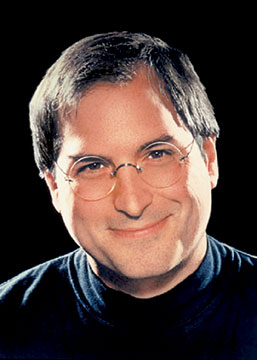 |
| Steve Jobs. Credits: Apple Inc. |
Steve Jobs, the founder and somewhat CEO of Apple is regarded in the American technology industry as a bright mind and someone that, although he may not spearhead the new trends, unleashes them with style upon the masses. His input in the computing industry has made Apple Computer the darling of many and the one to beat for many challengers. In the comic book industry, is there anyone that has the same profile and profound influence that Steve Jobs has in the technology industries? Is there someone that continuously challenges every other industry player in the comic book industry, coming up with new products and new ways of being more relevant for readers, collectors and shareholders?
Steve Jobs co-founded Apple in 1976, a maker of personal computers. In 1984, Apple introduced the Macintosh computer aimed at the home market. It was a simplified computer allowing users to interact easily with its interface. Because of its ease, it was readily adopted by schools and graphic artists. For many years, Apple would stumble upon technology developed and not as well propagated by its inventors, such as the desktop interface developed by Xerox. Leaving Apple for a while, Jobs founded 3D animation studio Pixar which is credited as the producer of some of the most successful animated films in American history. Returning to Apple full time after the purchase of his other computer company, NEXT, Jobs was responsible for the spearheading the development of the iMac, a popular self-contained desktop computer and a series of innovative laptops. Always, Jobs’ companies’ breakthroughs were rapidly copied or emulated by competitors, such as Microsoft.
In the last few years, thanks to chief technologist Jon Rubinstein's creation of the iPod portable MP3 player, Apple and Steve Jobs have again become the darlings of the media and the technology sector by changing the game on the wireless industry. Like several Apple products before it, the
iPhone has become the new standard against which every other cellular phone is judged. That similar devices, like the
Nokia N800, existed years before the iPhone is irrelevant. One of Jobs and Apple’s forte is publicizing their latest product to their evangelists and the media, who gobble up every detail. The advertising of Apple products is slick and creates the imagery that hip and cool people should use Apple products to the detriment of sometimes better performing offerings. Steve Jobs is seen as a visionary and a genius who sets the standard.
In order for a similar persona to exist in the comic book industry, such a person would have to share Jobs’ equal business acumen, draw a legion of supporters and evangelists, be continually spearheading breakthroughs in the comic book industry, have a magnetic and inspiring personality, be a creative individual with the willingness to change and contest the rules. That person must be someone whose products are constantly copied by competitors. People must want to associate with the products from that individual in order to improve their own standing. That person must have a track record of successful endeavours and projects that establish its credibility. This author has looked at many individuals in the comic book industry and here are some contenders who came up.
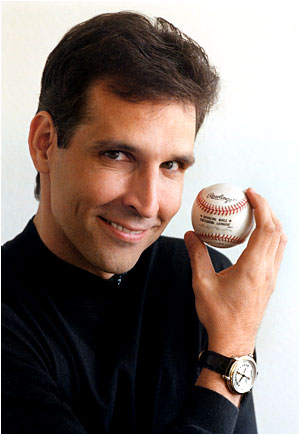 |
| Todd McFarlane |
Todd McFarlane
Todd McFarlane, the creator of Spawn founded his own action figure company. He started out as a comic book artist on low selling series like
Infinity Inc. for DC Comics. Becoming a
Spider-Man artist, he revolutionized how the character and his webbing were drawn. Leaving Marvel Comics with other popular illustrators to found Image Comics, McFarlane became one of the first millionaires of the comic book industry. He also changed the way action figures were produced by focusing on better quality for his products. McFarlane certainly had a captivating personality and scores of supporters and detractors.
Jim Shooter
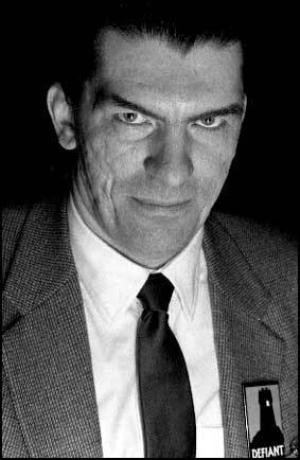 |
| Jim Shooter |
Jim Shooter began his career in the comic book industry as a minor, writing scenarios for DC Comics’
Legion of Super Heroes. There he changed the moribund series into one kids could relate to. After serving as a writer and editorial assistant for many years, he became Marvel Comics’ Editor in chief in 1978. There he started a gradual series of changes that would affect both the contents of the comic books and the work environment of the creators that made the comic books. He fought for better treatment of comic book creators, while being accused by many of his former peers of betraying them by standardizing work relationships. Editorially, he forced the death of Jean Grey in the Phoenix Saga where the character had devastated universes and supported improved storytelling in Marvel Comics of the 1980s. In 1990, Shooter and other associates founded Voyager Communication and its imprint
Valiant Comics after failing to secure the purchase of Marvel Comics. There he created a line of comic book super heroes and used marketing principles to sell them and make them desirable and collectors’ items. Although his efforts were quickly copied by many other comic book publishers, all releasing their own comic book universes the following year, Valiant Comic was instigating a strong house style where senior creators mentored younger ones. The production of the comic books was streamlined. Although expelled by his former partners from Valiant Comics, Shooter founded Defiant Comics, and Broadway Comics after the other start up was crushed under legal bills from vindictive Marvel Comics’ suits.
Jessie Garza
Jessie Garza founded
Viper Comics in 2001 after years of running his own comic book store with his brother Tony Garza. Earning a college degree in business, Garza set up Viper Comics as a stylish comic book publisher with its own identity. Early on, Garza recognized the need to separate business practises from creative ones. Although one of Viper Comics’ initial comic book series,
Moonrush, was killed before it ever reached stores, every other comic book series published after has had its own identity making Viper Comics’ product visually akin to Apple products. Their formats are different and the quality and attention to visual details excellent. Just like Jobs’ Apple Garza Viper Comics is an underdog competing against much larger players, while maintaining its own original identity.
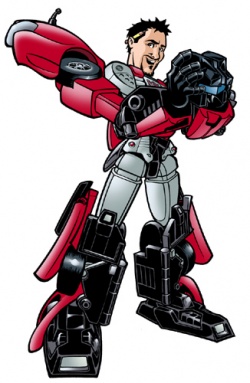 |
| Chris Ryall |
Chris Ryall
Chris Ryall earned a name in the comic book industry as the editor of online Magazine
Movie Poop Shoot, a site owned by comic book fan and movie writer Kevin Smith. Through his involvement with
Movie Poop Shoot, Ryall became the editor in chief of a small comic book publisher called
IDW Publishing. IDW Publishing is owned by a larger financial company with several interests in the wireless industry called IDT. Editor in chief of IDW Publishing since 2006, Ryall has been important in helping the publisher grow and develop an expertise in contents creation that can be harnessed and repackaged to other media. Using this expertise, IDW Publishing aggressively obtained the license of the
Transformers and
G.I. Joe comic books from toy manufacturer Hasbro. Ryall’s business skills have been alluded to by many industry pundits.
Joe Quesada
 |
| Joe Quesada |
Joe Quesada started as a comic book illustrator working mostly for Valiant Comics although he is also best known for his early work on the Ray for DC Comics. Quesada founded Events Comics in the late 1990s which was subsequently hired by Marvel Comics to develop its Marvel Knight imprint. Following his success on Marvel Knight, Quesada was hired as Marvel Comics’ editor in chief in 2000. Since, Quesada has focused on revitalizing the comic books of the publisher by hiring new creators and redefining the visual imprint of Marvel comic books. Quesada is a very creative individual whose ability to think outside the box has help rejuvenate Marvel Comics when it was floundering.
Steve Geppi
Steve Geppi is the founder and current president of Diamond Comics Distributor, the largest and exclusive comic book distributor to most of the largest North American publishers such as Marvel Comics, DC Comics, Dark Horse Comics and Image Comics. Starting in 1974, Geppi quit his post office job and began to focus exclusively on buying older comic books and selling them at collectors’ fairs. Geppi's first venture was a comic book store and eventually, following the looser distribution opportunities publishers such as Marvel Comics offered, Geppi stepped in the distribution business. Using freight rebates to finance his own trucking company, Geppi slowly grew Diamond into one of the premier comic book and collectible distribution company in North America. Following the purchase of Capital Comics by Marvel Comics in the 1990s, all other publishers aggregated towards Diamond Comics, effectively closing off the business to other North American distributors. After the folding of Capital Comics, Marvel Comics rejoined Diamond Comics as a client, thereby cementing the domination of Diamond Comics in the comic book industry. Geppi owns other companies related to the comic book industry such as publisher Gemstone Comics. He has been an shareholder of the Baltimore Orioles and has founded the Geppi Museum as well as donating money to several charities.
Mike Richardson
 |
| Mike Richardson |
Mike Richardson, the founder and CEO of Dark Horse Comics started out as a comic book retailer called Things From Another World before starting to publish Dark Horse Present comic book anthology during the black and white boom of the late 1980s. One of the only smaller publishers to escape from the bust of the black and white comic book expansion, Richardson created one of the largest comic book publishers in the industry which for many years was ranked just behind Marvel and DC Comics. Richardson started the shop around for successful film and television licenses that could be adapted to comic books such as Star Wars. Although that business model existed in the past, Richardson fine tuned the recipe which has since become a lucrative model for smaller comic book publishers desiring to gain more industry attention. Dark Horse Comics is also a sister company to Dark Horse Entertainment, the film and television counterpart to the comic book publishing business. Dark Horse Entertainment is an investor and producer of several successful film adaptations of comic books published by Dark Horse Comics, such as Frank Miller’s
Sin City and Mike Mignola’s
Hellboy.
Joe Nozemack
Joe Nozemack is one of the two founders of Oni Press, a comic book publisher with strong visual character and a strong influential editing direction. Oni Press was created in 1997 and although the series published by the publisher are not the best selling in the industry, they have idiosyncratic feels, cult following and critical acclaim by the industry. Nozemack’s Oni Press has a open approach to creators while emphasizing quality. Nozemack certainly has a strong personality and that exclusive attitude that has made Apple customer proud of supporting the computer maker. One could argue that Oni Press’ clients and followers are proud to support such a unique publisher.
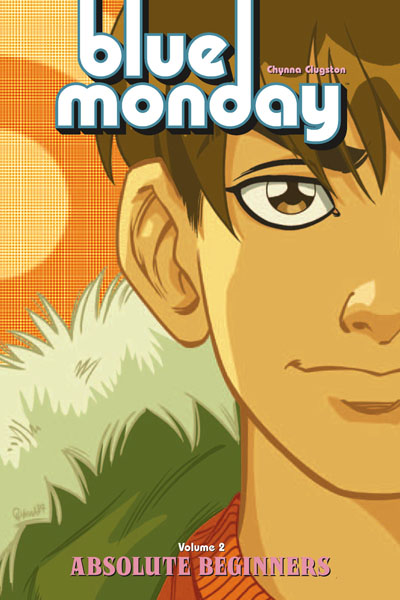 |
| Joe Nozemack's Oni Press |
Business Acumen
In terms of business acumen, Todd McFarlane, Jim Shooter, Steve Geppi and Mike Richardson stand out. Each has proven that they have the skill to manage a company and seize business opportunities when they appear. Jessie Garza seems like a sound manager for Viper Comics, but the publisher has not expanded beyond its initial territory although its market shares are bigger. Chris Ryall has the backing of a financial outfit and in both projects he started, but was not the original founder. It is difficult to assess the success of the wireless transfer of IDW’s comic books as its owner is involved in the wireless industry. Joe Quesada has not managed the business side of Marvel Comics as he would have with Events Comics. Would he perform in such a task or is his strength based on his editorial presence? Joe Nozemack, like Garza has not increased the standing of his company although he has performed at getting Hollywood interests to adapt Oni Press’ properties into film.
Legion of Supporters
Todd McFarlane, Jim Shooter and Joe Quesada have had strong support from peers and the public. However, with McFarlane, one could argue that many comic book readers and peers are jealous of his success. McFarlane has not been careful to foster his image with the public. In the case of the Miracle Man, pitting him against Neil Gaiman, he turned out to be the villain. Jim Shooter should be used to being deemed a villain by now. Many of his peers do not like him and attribute to him the worst of qualities. The public has always been more generous to Shooter as his advances and approach to comic book publishing were always customer friendly and in their interest. He certainly understood how to market his product and his image as the underdog. Quesada has supporters that say his vision of Marvel Comics is the best. He certainly has mastered the art of being front and center and the spokesman for the company he works for. Although Nozemack is respected, it is not his vision that people adhere to but that of his company. He has not become the inspiration for the vision he supports, just the man behind the scenes making it happen. As for the others, it would seem that they have their legions of detractors and supporters but nothing as ubiquitous as Steve Jobs’ standing.
Spearheading Breakthroughs
Todd McFarlane and Jim Shooter have supported creative or business breakthroughs. McFarlane has changed the how collectors’ action figures were created by improving the product’s design, thereby creating a whole new genre of products. His product innovation in the design of action figures have been adopted by several other toy manufacturers. Jim Shooter changed the marketing rules about comic books' enticing mail-in orders and was probably one of the first to harness the power of the user database he could generate from people mailing in their personal information. He understood that marketing comic books was as important as creating them. Richardson has been one of the first to build a business model around licensed properties as a way to generate income with safe products with mindshare already acquired through other media. The others have all acted upon breakthroughs but not been the instigators of trends. For example Ryall has closely followed Devil Due Publishing’s Josh Blaylock’s licensing smarts by surrounding and expanding the offerings of his company. However, he mostly perfected a formula that already existed.
Personality
Each of the men, and I’ll take this opportunity to apologize for the lack of women in this listing – has a personality to contend with. They certainly are capable of defending their companies and the projects they publish. Of all of them, Garza must be the most compassionate and approachable.
Creativity
The top creators in this list are of course those with professional experiences on the creative side. Although Richardson has written comics before, he is not in the same creative leagues as McFarlane whose Spider-Man designs continue to influence artists to this day. Shooter is primarily a good writer who apparently knows how to draw. He understands storytelling. Quesada is an illustrator with a dynamic style and way to interpret the world visually.
Rule Changing
All of the men change rules constantly. However, not to the same degree. The ability to change rules implies a certain humility and the capacity to steer a ship in another direction when mistakes are made. That means that observers should always second guess rule changers. Of these men, McFarlane, when he rewrote the book on the perception of self publishers, contributed a lot to the industry, whether one supports self publishing or not. McFarlane made that a religion that continues to find adherents to this day. Shooter is the only other man who by understanding how to create a company was able to reinvent himself and his career several times. The fact that he wrote a comic book published by one of the largest publishers when he was 14 years-old is also a rule changer's attitude.
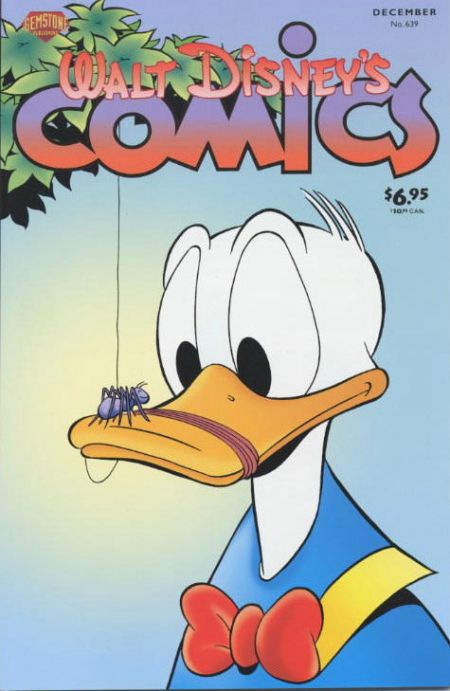 |
| Steve Geppi's Gemstone Publishing |
Status Products
McFarlane’s Spawn became a status product. Suddenly Image Comics was cooler, not solely on his own effort, but his continuing work and respect for deadlines helped that. He was also one of the most vocal spokesmen for self published comic books, making fans care about supporting them. Shooter made Valiant Comics desirable. To this day they are collected and traded and admired for their design and entertainment value. Buying a Valiant comic book was as much an experience as buying an iPhone is today. It was often said, although difficult to verify that Valiant Comics were for the college crowds, not the high school kids that read Marvel Comics. In the first issue of Harbinger, Shooter had predicted that this book would one day be as valuable as Avengers #1. He was right! Nozemack’s Oni comic books are liked because they seem to have a personality of their own. Buying an Oni comic book is certainly not the same thing as buying a DC comic book. There’s a feeling that one should be at a coffee shop to show off your reading list when it comes to Oni. I don’t feel smarter or like showing off to girls when reading a DC comic book, even a Vertigo series.
Successful Projects
All of the men described in this article have had successful projects although some of them have had terrible failures. But great men are known to fall hard, so this is certainly not a criticism on their skills. It’s just that they are willing to take more risks then most of us.
From the analysis above, only Todd McFarlane and Jim Shooter continuously stood out from the pack. However, as mentioned McFarlane has been seen in recent years as a villain in the comic book industry because of his lawsuits with Neil Gaiman. Jim Shooter has had similar amounts of legal issues, but in most cases, they were orchestrated against him by others. Unfortunately for both men, they are no longer seen as major players in the comic book industry. McFarlane has reclused himself to focus more on action figures that have gained a bad reputation as beautiful objects that break easily. Shooter works only on the periphery of the comic book industry and no longer contributes to its innovation. Thus, based on their track records, both McFarlane and Shooter are good candidates as Steve Jobs’ equivalent, but unlike Jobs they have not continued to regenerate their influence over their respective industries.
Last Updated: March 3, 2025 - 20:40







